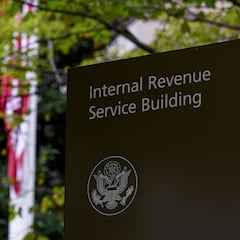What happens to my 401(k) if I change jobs?
After changing jobs, a worker has several options for their 401(k) retirement plan. We explain what happens, what are your options and some tips.


Having a retirement plan is essential. Millions of workers in the US have a 401(k) plan. However, when changing jobs and being fired, a worker must know what happens or what to do with it. We share the options and some tips.
What happens to my 401(k) if I change jobs?
According to the IRS, you may be able to leave your account as is. However, there are other alternatives, such as transfering money from your old 401(k) plan to your new employer’s plan or to an individual retirement account (IRA). On the other hand, the worker can also withdraw part or all of the money.
#IRS announces 401(k) limit increases to $22,500 for 2023. Learn more about this and the rise of other pension limits at: https://t.co/8YRJdCvtMj pic.twitter.com/D3Ujgx3voM
— IRSnews (@IRSnews) November 1, 2022
These are the options:
Leave it with the former employer
If you have more than $5,000 invested in your 401(k) plan, the worker can leave the money where it is after leaving a job, but there are other options as well.
Transfer it to your new employer
When changing jobs, we recommend checking to see if your new employer offers a 401(k) plan, when you're eligible to participate, and if rollovers are allowed. Once you're enrolled in a plan with your new employer, it's easy to renew your old 401(k).
You can choose to have your old plan administrator deposit your account balance directly into the new plan simply by completing a few documents. This process is known as direct transfer.
You may be interested in: What is a defined contribution retirement plan and how do I know if mine is?
You can also choose to have your old account balance delivered to you in the form of a check or collect the amount from your plan.
In this case, you must deposit the funds into your new 401(k) within 60 days to avoid paying income tax on the full balance and an additional 10% early withdrawal penalty if you’re under age 59½ . In this case, the former employer must withhold 20% for federal taxes and perhaps another percentage for state taxes.
Transfer it to an IRA account
If your new employer doesn't offer a retirement plan, you can roll your old 401(k) into an IRA.
receive distributions
Related stories
You can start taking money out of any 401(k) plan, old or new, after age 59½. Tax penalty is 10% for early withdrawal.
For more information, visit the IRS website.

